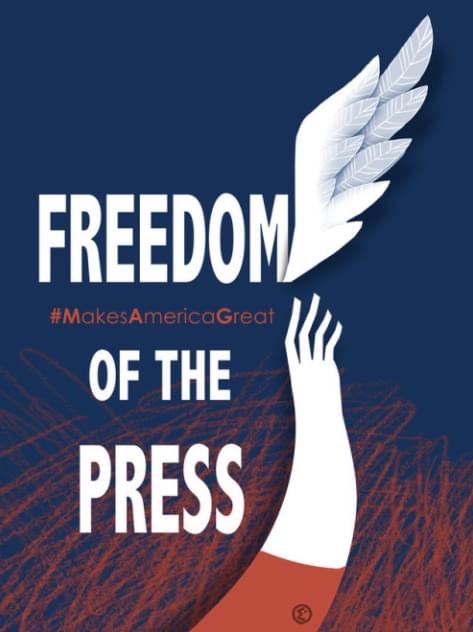By Amin Kef Sesay
UNESCO celebrates World Press Freedom Day every year on 3rd May during which the Guillermo Cano Prize is attributed to honor the work of an individual or an organization defending or promoting freedom of expression, without which we can hardly talk about transparency and accountability in Government.
UNESCO developed the Journalists Safety Indicators (JSI) to “pinpoint significant matters that show or impact upon the safety of journalists and the issue of impunity”. These indicators map the key features that can help assess safety of journalists and determine whether adequate follow-up is given to crimes committed against them.
The safety of journalists and their role in promoting inclusive and sustainable societies has been recognized by the United Nations in the 2030 Agenda for Sustainable Development. Goal 16 outlines the promotion of peaceful and inclusive societies for sustainable development, provide access to justice for all and build effective and inclusive institutions at all levels.
In this vein, His Excellency President Bio should be mindful that the human rights record of his New Direction Government, which is tied to aid and other forms of international assistance, is not sullied by frequent reports of beating, harassment and imprisonment of journalists in the performance of their duty of holding Government officials accountable in the spirit of transparency. As such, there is call on his Government to guarantee the safety of journalists whilst performing their duties and to be courageous enough to allow the law to take its course when the rights of journalists are violated by members and agents of Government.
From the beating of two female journalists by presidential bodyguards at the National Stadium, to the brutal beating of Fayia Amara in Kenema very recently by alleged State security personnel, it is time to break the cycle of violence, oppression and intimidation of journalists if democracy, which means Government of the people, by the people, for the people, is to take firm hold in our governance culture. Fundamental to this is the safety and freedom of journalists to do their work without fear of harm.
Safety of journalists is the ability for journalists and media professionals to receive; produce and share information without facing physical or moral threats.
Notoriously, during the RUF war, journalists faced violence and intimidation for exercising their fundamental right to freedom of expression. In a democracy, freedom of expression which is central to the work of the journalist must be guaranteed and protected by the State at all cost, not violated or tampered with.
What is appalling is that recently, there seems to be a growing trend of impunity for crimes against journalists.
Its root cause has to be attributed to lack of political will to pursue investigations, in addition to inadequate legal frameworks, a weak judicial system, lack of resources allocated to law enforcement, negligence, and corruption.
Meanwhile, there are several international legal instruments that the Government must respect that support the creation of an enabling environment for the safety of journalists. These include the Universal Declaration of Human Rights; the Geneva Conventions; the International Covenant on Civil and Political Rights; the United Nations Commission on Human Rights Resolution 2005/81; the United Nations Security Council Resolution 1738 (2006).




